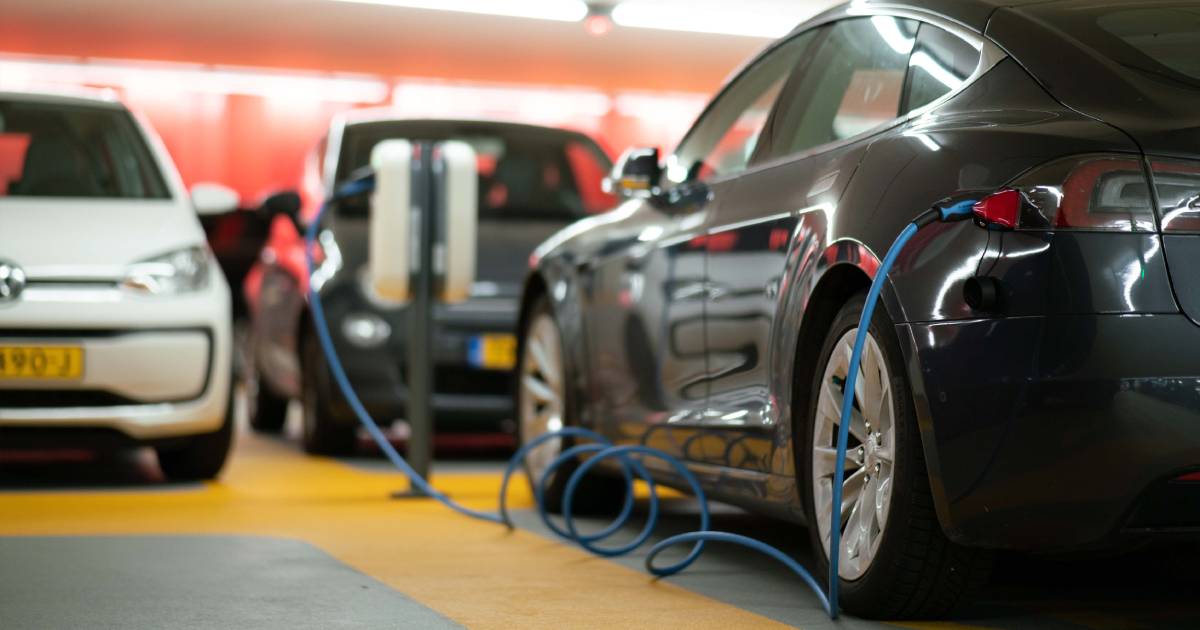Using demand forecasting to develop models for EV infrastructure
26 October 2021 | By: Newcastle University | 2 min read
The next 10 years will see a significant jump in the number of electric vehicles, and a need for public charging networks.
NU Solve, alongside Zero Carbon Futures, is developing models to forecast the future demand for electric vehicle charging infrastructure.
The UK announced a plan to end the sale of new petrol and diesel cars from 2035, as part of its ambitions to transition to net zero by 2050.
It is a bold move, and if proven successful, it could prompt greater international action. The highly anticipated 2021 United Nations Climate Change Conference (COP26) is fast approaching. All eyes are on how many nations will join the UK in pledging to become a carbon-neutral economy by 2050.
The summit of global leaders could be the last chance to broker meaningful joined-up action to tackle the impacts of climate change.
We have felt these impacts with increasing severity and frequency in recent years. From Australia’s devastating wildfires at the start of 2020 to central Europe’s flash flooding in July 2021, extreme weather events are becoming more commonplace.
Electric vehicles and the road to net zero
The case to target net zero is more compelling than ever. Exactly how we reach this endpoint is still up for debate. It is also subject to the cyclical nature of government regimes.
What is clear is that decarbonising the UK’s roads will play a critical role in getting there.
We saw a greater proportion of new electric vehicles (EV) on our roads in 2020 than ever before.
RAC estimates that there are now more than 330,000 zero-emission battery electric vehicles and 320,000 plug-in hybrids being driven in the UK.
We expect to see a large jump in the number of EVs on our streets over the next 10 years. With this comes an urgent need for a public charging network. Deloitte analysed that this charging network will need to be over 10 times what it is today. Its estimated cost will be £18 billion.
Key questions revolve not only around how and where to develop an EV infrastructure network that will be fit for purpose in the future, but also what exactly we need.
How is Newcastle University Solve supporting the transition to net zero?
Newcastle University is a world-leading university, based in the North East of England. It has a unique, multi-disciplinary approach to researching new mitigation and adaptation strategies to reduce and curb greenhouse gas emissions.
Newcastle University Solve (NU Solve) is a research-driven division within the School of Mathematics, Statistics and Physics. It has been helping businesses, public sector organisations and industries to find answers to complex challenges for more than three decades.
Here, we support the transition to net zero through predictive modelling, data analytics and demand forecasting. We work closely with Zero Carbon Futures (ZCF) on a variety of industrial projects. This includes the predictive modelling of short- and long-term future energy demand for electric vehicles.
Demand forecasting: a vital tool for planning EV infrastructure
We believe that any model to predict demand for electric vehicle charging infrastructure will be centred on user behaviour which can be influenced by many variables.
Such behaviour will evolve over the next decade as EV users acclimatise themselves with new technology and habits that they are not currently used to. Likewise, as EV offerings relating to charging and the vehicles themselves develop, so will the behaviour of drivers in response to these changes.
With this in mind, NU Solve and ZCF are strongly propagating the use of advanced statistical techniques to make predictions. These predictions will enable closed-loop performance management.
In simple terms, closed-loop performance management is the practice of ‘taking action’ based on the results of performance monitoring, and blending these results with updated plans to drive business value and reach agreed objectives.
This is achieved through management processes, data analysis and applications that support real-time access to data. Critically, this is coupled with tacit knowledge to enable other applications or users to define, agree on and monitor new actions based on feedback.
NU Solve and ZCF, along with the wider Newcastle University network and external partners, commands the collective multidisciplinary expertise to inform models for the development of EV charging infrastructure.
This applies to large and smaller-scale infrastructure requirements.
We are helping decision-makers to address the interests of all parties involved in building up the UK’s capacity to decarbonise its roads, from local planners and policymakers to national bodies responsible for larger schemes.
As the road to net zero and 2050 continues to move closer, we will continue to advance our role in leading major international networks. We will work with partners across the globe to meet what we hope will become a locked-in worldwide target after COP26.
